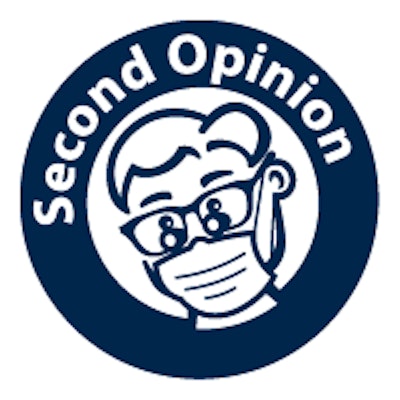
This article originally ran on the Texas Dentists for Medicaid Reform (TDMR) website. DrBicuspid.com appreciates them allowing us to reprint this column in its entirety. For more information, please visit the TDMR website.
Theoretically, it just takes one allegation of a fraudulent claim by one employee in order to justify the imposition of a payment hold. Some dentists have the resources to fight the allegations and have won their battles.
For others, the crushing payment holds have driven them out of business. Moreover, even if the dentist happens to win the case and its subsequent appeals, there is no telling when the dentist will receive the payments held by the government.
In 2010, the Office of Inspector General (OIG) of the U.S. Department of Health and Human Services (HHS) received roughly $17 for every dollar it invested in enforcement. While Texas' enforcement agencies may yet to experience those levels of returns on its enforcement activities, it is reasonable to believe the agencies will strive to achieve or exceed those levels of returns. Additionally, the Office of the Attorney General's Civil Medicaid Fraud Unit announced that 20 of its pending whistle-blower cases involve 400 dental and orthodontic Medicaid providers.
Further, the Affordable Care Act (ACA) gave the secretary of HHS even more severe enforcement tools, specifically including the authority to revoke a provider's billing number if several grounds exist, including the following:
- Noncompliance with enrollment requirements
- Provider or supplier conduct, such as instances where a provider employs an excluded individual
- Felonies -- the provider, supplier, or any owner of the provider/supplier who within the last 10 years had been convicted of a felony
- Providing false information on an application to enroll or participate in a federal healthcare program
- Misuse of billing number -- the provider sells or allows another provider to use his or her billing number (without proper change of ownership, or CHOW).
- Billing for deceased individuals or others who could not possibly have received the service (e.g., the provider was out of state but billed for services)
Unlike payment suspensions, revocations stay in effect for at least a year and could last for up to three years based on the severity of the situation. Additionally, the use of these tools are consistent with the Department of Justice (DOJ) guidelines that instruct prosecutors to consider "noncriminal alternatives to prosecution" when available and warranted under the circumstances. Recent enforcement trends show a significant increase in the imposition of suspensions and revocations, a trend experts think will only continue.
Compliance issues
The Affordable Care Act states that providers "shall, as a condition of enrollment" in Medicare and Medicaid programs, have a compliance program. While many larger organizations are required to have compliance programs, prior to ACA, the OIG "suggested" that healthcare providers have compliance programs. Industry experts have stated that government fines and penalties are significantly less when the agencies find that the health providers under investigation have a robust compliance plan. While that may be the case, this new requirement provides yet another requirement that dental practices must develop expertise in and comply with.
Many smaller organizations lack the expertise in regulatory compliance and the demands of the practice do not allow them to stay abreast of the latest regulatory changes, while remaining current in their respective practice areas. This situation forces them to rely on personnel who are typically not well-versed with the various rules, regulations, and industry requirements, along with being overburdened with the day-to-day activities of providing quality healthcare to adequately develop, maintain, update, and implement a robust compliance plan.
The implication is that many organizations are out of compliance with many of the regulatory requirements for providing healthcare. Inadequate regulatory compliance may translate into having a workforce with inadequate training or awareness, which could lead to billing errors and noncompliance activities, fines, penalties, and potential imprisonment. Noncompliance exposes healthcare providers to hundreds of thousands and, in some cases, millions of dollars in fines and penalties.
A solution for healthcare providers
Organizations can prepare for these government audits and investigations by engaging affordable, qualified compliance professionals to augment their staff and provide peace of mind. Some professionals offer compliance services for a monthly fee that includes a customized compliance program, policies, procedures, training and quarterly compliance updates, and awareness presentations.
Also, these professionals serve as subject matter experts and provide advice on what activities could trigger noncompliance. These services provide peace of mind to dentists and other healthcare providers and allow them to concentrate on providing quality healthcare to deserving patients.
In short, these are trying times for dentists who provide healthcare services for federal health plan patients. Increased enforcement, greater scrutiny, and more complex regulatory requirements make practicing dentistry a difficult task. However, qualified assistance is available to provide affordable services that address the ever-growing federal and state requirements.
Greg Ewing is president of Texas Dentists for Medicaid Reform. He is a healthcare lawyer with over 15 years of experience in transactional health law; health information technology; and privacy and security compliance, assessment, and remediation. He also holds a Master of Public Health from the Harvard School of Public Health.
The comments and observations expressed herein do not necessarily reflect the opinions of DrBicuspid.com, nor should they be construed as an endorsement or admonishment of any particular idea, vendor, or organization.
Copyright © 2013 Texas Dentists for Medicaid Reform


















